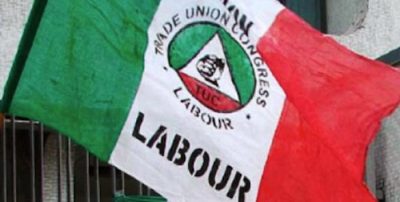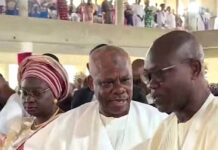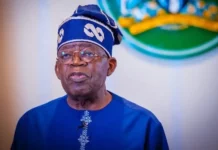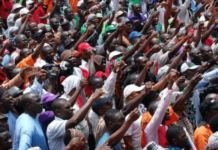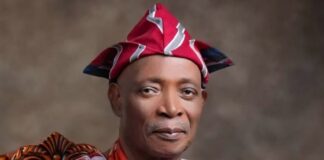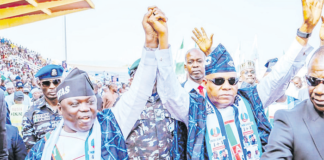Barring last minute hitches, labour unions will commence a two-day warning strike today September 5, meant to press home their demands upon the federal government, arising from the National Executive Council meeting of the Nigerian Labour Congress held in Abuja on August 31, 2023.
The issues raised by the NLC for this warning strike include the need for the government to measure up on the distribution of palliatives to cushion the effect of subsidy removal, repair and activation of local refineries, spiraling inflation and worsening economic conditions. People generally look up to labour to take on the government on many issues that affect them, given that most economic policies of the government bear direct impact upon workers, especially those in the lower cadre. I am concerned and I believe a good number of other Nigerians are, with the constant declarations of the NLC in respect of strike actions that seem to lead to nowhere.
According to Wikipedia, the Nigerian Labour Congress was founded in December 1978, as a merger of four different organisations: the Nigeria Trade Union Congress (NTUC), Labour Unity Front (LUF), United Labour Congress (ULC) and Nigeria Workers’ Council (NWC). However, the recently-established Federal Military Government, led by Murtala Mohammed, refused to recognise the new organisation, and instead set up the Adebiyi Tribunal to investigate the activities of trade unions and their leaders. The Tribunal reported in 1976 and claimed that all the existing trade union centres propagated Cold War ideologies, depended on funding from international union federations, and mismanaged funds. This was used as a justification to ban all four centres, with M. O. Abiodun appointed as the administrator of trade unions. He accepted the establishment of a new Nigeria Labour Congress, on the condition that the approximately 1,500 affiliated unions were restructured into 42 industrial unions, plus 19 unions representing senior staff. In 1978, the Nigeria Labour Congress was established, with the 42 industrial unions affiliated. It was to be the only legal trade union federation. Its leadership included many of the leading figures from its four predecessors, with Wahab Goodluck becoming its founding president.
In its own website, the NLC states its aims and objectives to be that of promoting the right to work and encouraging decent employment opportunities for all Nigerian workers. In general, labour represents the soul of the masses of any country, being the largest company of workers. The aims and objectives of the NLC are to protect, defend, and promote the rights, wellbeing and the interests of all workers, pensioners, the trade unions and the working class in general; and also to promote and defend a Nigerian nation that would be just, democratic, transparent and prosperous, to promote, defend and advance the economic, political and social rights and wellbeing of Nigerian workers and pensioners; to continually enhance the quality of life and improve the income and other working conditions of workers, to promote and sustain the unity of Nigerian Trade Unions, ensure total unionization of all workers irrespective of their creed, state of origin, gender and political beliefs; to work for the industrialization and prosperity of the Nigerian nation and ensure protection of jobs, full employment and a humane working environment; to continually struggle to influence public and corporate policies and legislation on all issues at all levels, in the interest of workers, disadvantaged social groups and trade unions; to print and publish literature for the purpose of enhancing and achieving the aims and objectives of Congress and its affiliates.
Many Nigerians hold the view that labour has become a toothless bulldog that only barks without biting, given the recent experiences. On many occasions, a warning strike is issued and people are mobilised and threatened to stock their homes with foodstuffs as the strike may ground all activities across the land. These strikes never really come to pass, as most of the time on the eve of the strike, labour will call it off or postpone it or the government will obtain an order of court to prohibit it. There is therefore the need for labour to redeem itself before Nigerians to avoid these seeming dramas and theatrics. Are strike actions meant to harass the government or impress the people? What is the purpose of strikes? I was disturbed seeing the photos of labour leaders posing with the President during the last strike, with no concrete plans or goals outlined for action, except that they squandered the goodwill of the people on the platter of presidential tete a tete. Which is why labour is back to the trenches so soon.
Strike actions should not be matters of industrial grandstanding, where labour leaders raise the same issues over again. When labour is to go on strike, the whole nation should be on guard and the strike should go beyond bread and butter issues. Sufficient mobilization should have taken place as a means of educating the people on the purpose and gains of the proposed action. Fuel price increase affects workers more than any other sector, so too the issue of constant electricity tariff increases. Workers must report for work on a daily basis, spending money on public transport and allied expenses, they have to power their homes with generators given the epileptic nature of public power supply. For many reasons, labour unions are entitled to go on strike, if that is the only way to get the attention of the government on the issues at stake. Like I said, I am worried, in particular that labour seems to have taken strike actions to be a kind of carte blanche, to be deployed to address every issue. A warrior does not make the practice of shooting its best arrows first and when that misses the target, he is then left with weak and substandard arrows that deal no blow upon impact.
The other point is the need for forensic research by labour on matters concerning the economy and general welfare of the people. If local refineries will work in December 2023 as stated by the government, labour is in the best position to tell us, if fighter jets have been bought to combat terrorism, workers should tell us, whether there is crude oil theft as we have been told on countless occasions, labour should know and the quantum of fuel consumed by Nigerians daily, should be at the fingertips of labour. Thus, before embarking upon any strike at all, the workers union should tell us the true state of electricity generation, transmission and distribution in Nigeria. Since what the government revels in is propaganda, labour should be an alternative source of credible information concerning the economy, infrastructure, insecurity, etc. This aspect of the sacred responsibility of labour is not being discharged effectively, thus leaving the people at the mercy of the government.
I support labour and all its plans and actions to the hilt, this can never be in doubt at all, but we have come to the stage when we must begin to ask questions from labour. For instance, what is the effectiveness of its collaboration with civil society organisations? Why is it that these critical partners of labour are not encouraged to prosecute protests and strike actions if and when labour becomes handicapped? And having formed a political party through which it canvassed for votes openly, is there an issue of conflict of interests on the part of labour? We have never had a situation whereby the people ever rejected labour, whenever it calls for a strike action. On the other hand, what we have experienced is labour calling off its own strikes abruptly upon the intervention of the same executive arm of government with which labour has been dealing. It is either labour is ready for a strike or it is not, but to continue in this dilly dally fashion of declaring strike actions in the media everytime may prove to be a dangerous path for labour to thread. People are losing confidence in all these warning strikes without concrete actions or achievements. The Academic Staff Union of Universities prosecuted a prolonged strike action purely on principle and their salaries have remained unpaid for so many months. But I can sit here and state that should the occasion arise at any time, ASUU will not hesitate to go on strike again, even on empty stomachs. A labour union that partners with the people should be predictable in consistency and firmness of actions. The uncertainties surrounding labour strike actions leave much to be desired.
Another option that labour should look into is approaching the courts to use law to prosecute some of its struggles. Many issues being raised by labour have to do with non-compliance with extant legislations, agreements and policies, by the government. It is not out of place for instance, for NLC to file an action in court to stop further increment in the price of petrol products until the local refineries have been fixed and confirmed to be working. Labour should not get to the point where the people become weary with constant strikes without concrete achievements.

